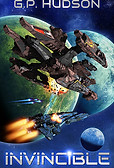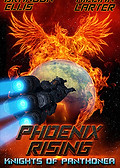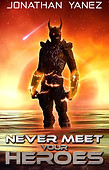Star Wars Isn’t Space Fantasy - Here's Why
- Scott Bartlett
- Jun 19, 2018
- 3 min read
Okay, yes. Let’s get it all out of the way.
The Star Wars movies have princesses. There are knights with a chivalric code. They even feature the classic fantasy theme of good vs. evil.
Then there’s the great granddaddy of why people keep calling this franchise fantasy:
The Force.
It’s a magical, all-encompassing field of energy that gives the Jedi their powers. Those who follow it do so with a religious fervor. And you’re not going to hear me claim that midi-chlorians are anywhere close to an adequate scientific explanation for all this.
Doesn’t matter. Star Wars isn’t space fantasy.
Why, you ask? Because we have genres for a reason, and the people arguing that Star Wars = fantasy are muddying them.
I’ll agree with you that the Force looks a lot like magic. But almost every science fiction book or movie ever is going to have that to some degree – what you could easily call “magic.” We already have a term in science fiction fandom that works perfectly well to describe this: handwavium.

Sure, maybe handwavium isn’t the most hallowed practice. But nearly every sci-fi writer does it, to some extent. When you write about a future with tech advanced beyond what we have now, it’s basically inevitable.
Handwavium is the element - the magical element, dare I say - that makes science fiction stories tick. It can be done well, and it can be done poorly. But it is done, to some extent. Almost always. Probably in every sci-fi story you love.
There’s plenty of handwavium in any story with faster-than-light (FTL) travel, for example. FTL breaks relativity, which isn’t possible according to our current understanding of physics. In other words: magic!
Does that mean every space opera story with FTL travel is space fantasy? No. Those stories are space opera.
And so is Star Wars. It’s space opera. A subgenre of science fiction.
Yes, the Force is more in-your-face. It’s literal handwavium. Still doesn’t break genres.
Saying the Force “just works” is no different from space opera writers saying their spaceships “just work.” We’re given no scientific explanation for either, but unexplained spaceships don’t take us out of space opera, and neither does the Force.
Those who want to classify Star Wars as space fantasy would have us break down science fiction according to the hardness of the science. They want us to disproportionately place emphasis on the science over the fiction.
“Science fiction is a story with accurate science as the main focus,” they say. “Every other story is something else.”

This definition kicks out most of what we currently consider sci-fi. People get hung up on how much real science a story has and ignore all the other factors we use to distinguish genres. Just because a parsec is a measurement of distance and not time doesn’t mean Star Was has to be considered fantasy.
Which brings me back to my original point: we have genres for a reason. They’re decided by the market. You can call that a soulless way to settle the matter if you like, but I’d have to disagree. The market is made up of people, and the genres are designed to make it easier for those people to access the books they love.
Science fiction has a subgenre to serve the people who want stories that focus on scientific accuracy: it’s called hard science fiction.
We also have the dystopian, military, cyberpunk, time travel, and space opera subgenres – all science fiction.
Give sci-fi purists a label maker and free access to a bookstore, and it’s going to get a lot harder for readers to navigate. Classifying things by degrees of scientific accuracy only muddies the waters for people who just want to read and watch what they love.


































Comments